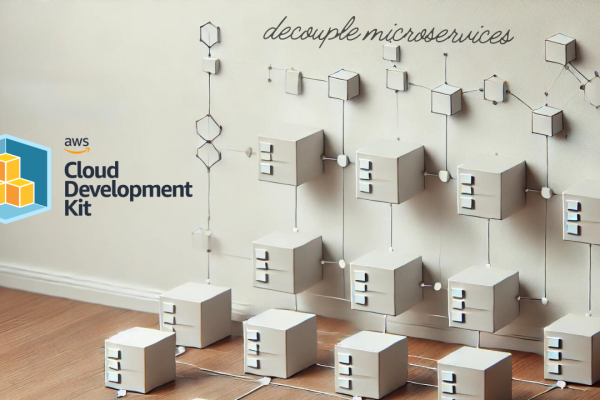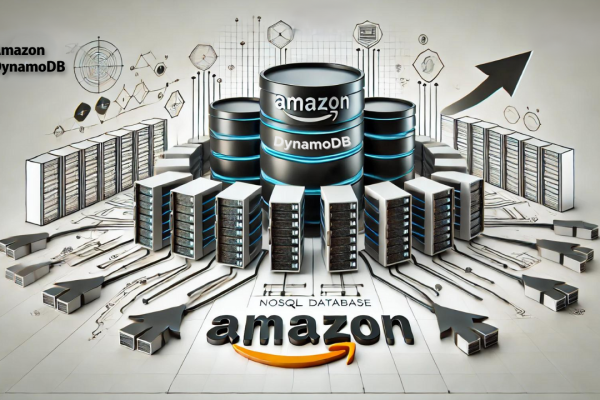The financial infrastructure faces unprecedented challenges and opportunities. Central Securities Depositories (CSDs) have been fundamental in the evolution of financial markets, providing essential custody and settlement services. This article explores how CSDs have adapted their role and technology to stay relevant, especially with the integration of emerging technologies like blockchain. Discover how these transformations impact not only the financial sector but also industries such as real estate, supply chain, and energy.
The Evolution and Impact of Central Securities Depositories (CSDs)
Central Securities Depositories (CSDs) are an invaluable infrastructure within the financial services industry. CSDs serve as the central hub for safekeeping and settlement of securities after executing a trade, enabling the efficient transfer of ownership and minimising the risks associated with the physical transfer or exchange of assets. The role of CSDs has continuously evolved with the needs of the industry and the technology of the day. During the late 20th century, CSDs emerged as an effective solution to issues caused by increasing transaction volumes, which were compounded by the inefficiencies of physical ledger-based systems.
Key development: Immobilisation and dematerialization of security systems
A key development in the utilisation of CSDs was the immobilisation or dematerialisation of security systems based on the adoption of bookkeeping. As they evolved in the digital age, CSDs formed the foundations for the modernisation of the finance industry. CSDs primarily functioned as a means to immobilise physical certificates and introduce digital bookkeeping systems, thereby reducing the risk of theft, damage, or loss. Asset custody, asset servicing, and trade settlement are some of the other crucial use cases satisfied by CSDs which make them a cornerstone of the financial services industry. CSDs can also process corporate actions such as interest disbursements, dividend payments, and more.
Expansion of the role of CSDs in the 21st Century
In the 21st century, the role of CSDs has grown beyond the financial markets. Following the invention of digital assets, several industries have adopted CSDs to support their infrastructure, accommodate new types of securities (including tokenized assets and cryptocurrencies), and improve operational efficiency and integrity. This adoption has heralded a new era where fast technological innovation and subsequent complexities have created a gap for CSDs to fill.
Real-world applications of Central Securities Depositories (CSDs) in industries
Central Securities Depositories (CSDs) are extending their influence beyond traditional financial markets, bringing significant innovations and efficiencies to various industries. The integration of advanced technologies such as blockchain is unlocking new possibilities and transforming how different sectors operate.
Tokenization of Real Estate Assets
In real estate, CSDs are facilitating the tokenization of assets, allowing properties to be divided into digital shares that can be traded on blockchain platforms. This innovation enables greater liquidity and accessibility in the real estate market. For instance, blockchain technologies are implemented to allow investors to purchase fractional ownership in rental properties, streamlining the investment process and providing real-time transaction records. CSDs are invaluable in this situation since they can be integrated with DLT to track assets and settle transactions.
Ensuring traceability and security in the supply chain industry
The supply chain industry also benefits from the digital transformation of CSDs. Using blockchain technology, CSDs can provide a transparent and immutable record of the movement of goods. This enhances traceability and reduces the risk of fraud. For instance, a system can be developed that uses blockchain to track the journey of food products from farm to table, ensuring safety and authenticity.
Advancements in the Energy Sector
In the energy sector, CSDs support the trading of carbon credits and renewable energy certificates. These digital assets are essential for companies looking to offset their carbon footprint and comply with environmental regulations. Blockchain technology ensures the accurate and transparent tracking of these credits, facilitating their trade and settlement. The Energy Web Foundation, for example, has developed a blockchain-based platform to manage and trade renewable energy certificates, promoting sustainability in the energy market.
All industries adoptions of CSDs are similar to the solutions Chakray Consulting developed. The CSD remains the cornerstone of industry adoption of digital assets as it provides custody services, enhances operations, reduces risks, and maintains integrity.
Digital Age adaptation of CSDs
CSDs have experienced significant technological transformations in the digital age. The advent of distributed ledger technology (DLT), such as blockchain, has heavily influenced these transformations, as CSDs have integrated with DLT to align records and maintain their relevance in the digital age. A key adaptation is the integration of blockchain technology to create efficient and transparent settlement processes.
Adaptation Example: Tokenized Asset Trading Platform
An example developed by Chakray Consulting is the integration of blockchain technology into a CSD, brokerage, and exchange to deliver a tokenised asset trading platform. This adaptation provides faster settlements, reduced operational risks (reducing manual intervention), and improved overall market efficiency. Chakray Consulting has delivered a CSD with the following functionalities:
- Settlement, asset servicing, and corporate actions, therefore improving efficiency and transparency.
- Custody service for tokenised assets and digital securities by serving as the central depository record keeper.
- Serves as a single source of truth, ensuring businesses can meet regulatory requirements.

Fig. 1: Simplified interactions between the CSD, Brokerage, Exchange, and Blockchain systems developed by Chakray Consulting.
In the solution shown above, registered brokerage users can place an order for tokenised assets and securities. The exchange matches the orders, sends a report to the CSD when the order becomes a trade, and the CSD settles the trade and uploads the trade information to the blockchain. Having processed the transaction, the blockchain returns a response to the CSD detailing the updated positions of the parties involved, which the CSD uses to confirm its records are aligned before marking the trade off as ‘registered’.
Tokenisation of assets has created a new pathway for CSDs in the digital age. A wide range of assets can be subject to tokenization, from financial assets to art and real estate. Integrating CSDs into tokenization platforms enables them to provide more than just custody services. CSDs can facilitate the trading and settlement of tokenized assets and serve as a tool for regulators to assess these platforms.
Consequently, CSDs are becoming a crucial part of the finance and digital assets landscape. Many have been designated a special status in national regulations and are subject to supervision by national central banks and securities market authorities due to their central role in enabling securities markets to function smoothly. The same applies to their role in trading tokenized assets, as CSDs enable the transfer of title, registration of ownership, and ensure the existence of the assets or securities.
As institutions continue to adopt tokenization in the digital age, stakeholders expect significant innovation in how it is adapted and utilised. CSDs are leveraging new technologies to enhance their operations. The integration of CSDs with Artificial Intelligence (AI) and Machine Learning (ML) has the potential to further enhance CSD operations by improving fraud detection, risk management, and predictive analysis.
Innovative Digital Age use cases of CSDs
Digital technologies have been powering the digital age adoption of CSDs for a variety of innovative use cases, including:
- New Asset Classes: Tokenizing assets classes, including real estate, precious metals, commodities, fine arts, collectibles.
- New Custody Services: Providing the services that ensure the safekeeping of asset-backed tokens. Provision of digital wallets for holding various types of tokens, including utility tokens, decentralised finance (DeFi), and non-fungible tokens (NFTs).
- Tokenise Issuance Service: CSDs are able to leverage digital ledger technology (DLT) to tokenise securities. Customer Due Diligence Services: Conduct Know Your Customer (KYC), Anti-Money Laundering (AML), Countering the Financing of Terrorism (CFT), and sanctions checks during issuers and investors onboarding.
- Tax Management and Reporting: Collecting and managing taxes for token investors, and ensuring compliance with tax regulations.
- Facilitate Inter-operability: CSDs can act as the settlement intermediary for a technical standard for the identification and exchange of tokens across a range of blockchain networks to ensure integration and interoperability.
- Netting Transactions: Transactions netting for cash settlement of the blockchain network, thereby improving efficiency and reducing the need for multiple individual settlements.
Chakray Consulting has the skills and experience in developing and delivering the use cases described above.
Conclusion
Developing and delivering CSDs, brokerages, the administrative systems to manage traders and investors, and integrating with third party exchanges (MIXIT, for example) requires considerable skills and niche experience. Chakray has the skills and experience in designing and delivering these systems; from eliciting requirements, to software development and software testing. Our experts can also integrate CSDs, DLT (blockchains, for example), and related systems (compliance systems, for example) to deliver value as quickly as possible. Chakray also provides support and maintenance services for these systems to enable our clients to reduce the risks involved in managing these systems.
For more information or assistance to get started, feel free to contact us at any time!


Contact our team and discover the cutting-edge technologies that will empower your business.




